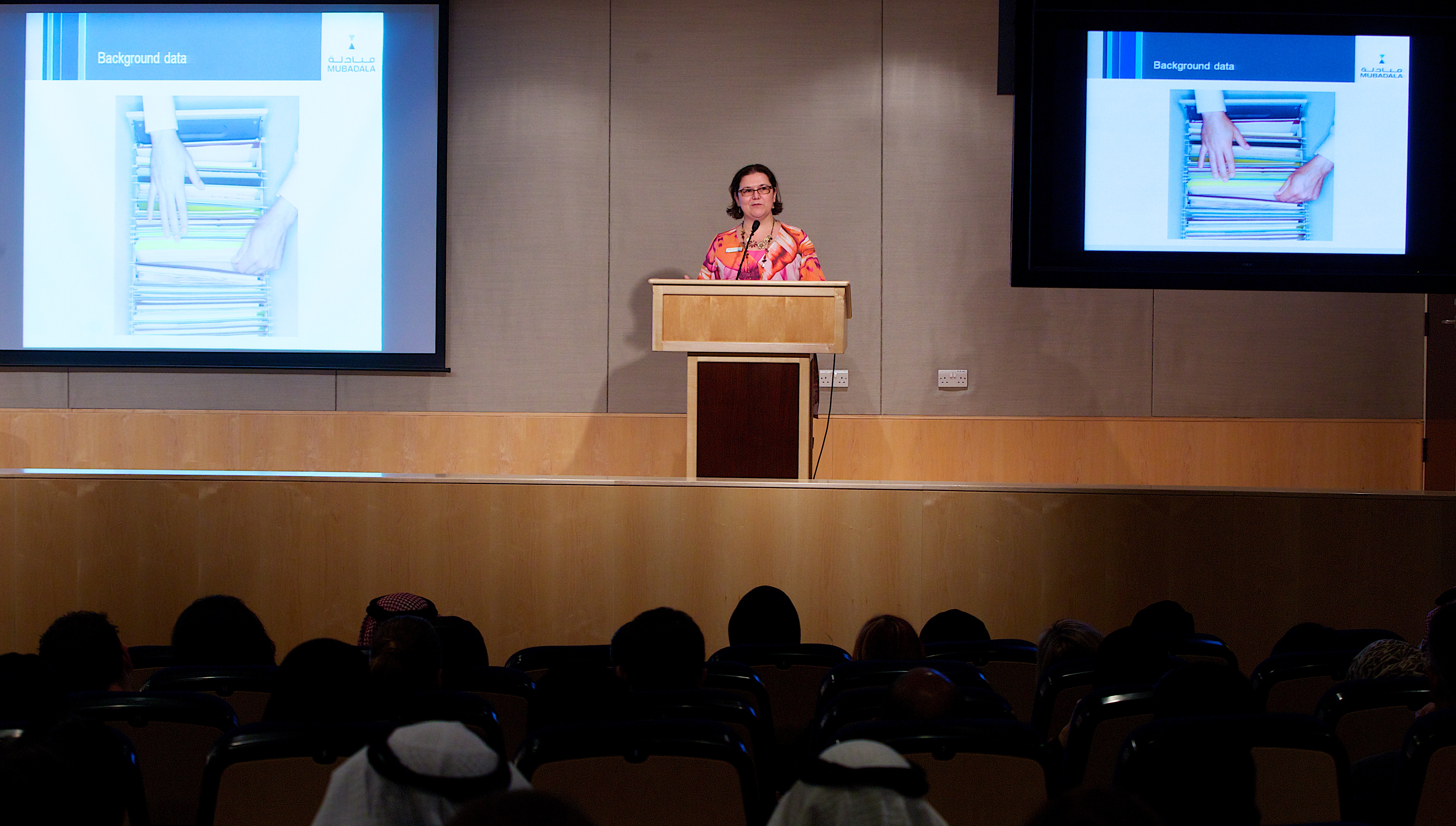 I spent the week-end at the Emirates Airlines Festival of Literature in Dubai. If you live in the region, it is an event that I highly recommend you attend next year : a wide variety of speakers, on many topics related to books. There is a whole stream dedicated to children, and given the numbers of kids that were present, I guess the y still enjoy reading and hearing stories 🙂
I spent the week-end at the Emirates Airlines Festival of Literature in Dubai. If you live in the region, it is an event that I highly recommend you attend next year : a wide variety of speakers, on many topics related to books. There is a whole stream dedicated to children, and given the numbers of kids that were present, I guess the y still enjoy reading and hearing stories 🙂
Among the workshops I attended, 3 were related (more or less loosely) to the impact of technology on the book industry. The first one covered how 2 Dubai-based published authors use social media (mostly Facebook, Twitter and blogging) to interact with their audience and eventually sell more books.
The second one was about how to work with your publisher. One of the main outcomes is that publishers expect the authors to build their own platform to reach out to their readers and be an active participant in the publicity outreach when their book goes out to the public. This confirmed the previous workshop with our two local authors who are both very involved online.
The third one had the publisher of JK Rowling as well as 2 published authors, and they discussed the impact of digital publishing. Obviously, they were not too keen on self-published books !
The publisher was actually less tight than the 2 authors, and he did comment a few times that he did not want to look like a dinosaur trying to defend the last scraps of his old territory. He even shared some of the new ways that publishers interact with authors, the media and the public.
Yet… yes, it did feel a bit like the industry is out-of-synch with what people want. “People” being writers who aspire to be published, and readers who don’t care much whether the content / book they consume is published through an established company, or self-published.
So what does that all have to do with Compensation & Benefits, you ask ? Well, as I was sitting through this workshop, I couldn’t help but think of other industries that were deeply affected by technology.
The most recent one is the music industry. Executives in that business were also in denial and wanted to cling to their old model of “finding” who the public would like, making money through selling CDs and paying the artists a small part of the income they generate through the sale of these CDs. Exactly the same as the book industry.
They refused to recognise that with the movement towards dematerialisation of content (ie : music is now downloaded on the mobile MP3 player of the fan), they had to invent new monetisation models. And so the industry almost disappeared.
Nowadays the public often finds who they like to listen to and sing along through the internet and social media , barely pays for downloading the songs, but will pay much more money for attending concerts, buying T-shirts and other paraphernalia – to be part of an experience.
Today, the book publishing industry is at risk of facing the same situation. I believe that their C&B teams can help them smooth the path to transition. If the industry admits that they need to find new ways of doing business, their incentive schemes can focus on innovation, taking risks, and new KPIs. They can include a focus on new ways of publishing, or speed to publish, or identifying pools of new clients/authors.
It sounds similar to making incentive schemes for hunters vs farmers in a classic sales environment. Or to making incentives for pharmaceutical R&D teams, where long-term and uncertainty of results are common as well.
What do you say ? Do you know anyone in HR in the book publishing industry who could comment ? I’d be really interested to hear if and how incentives and recognition schemes are adapting to their new environment when such disruption is taking place – and so quickly.
Related posts :


Speak Your Mind